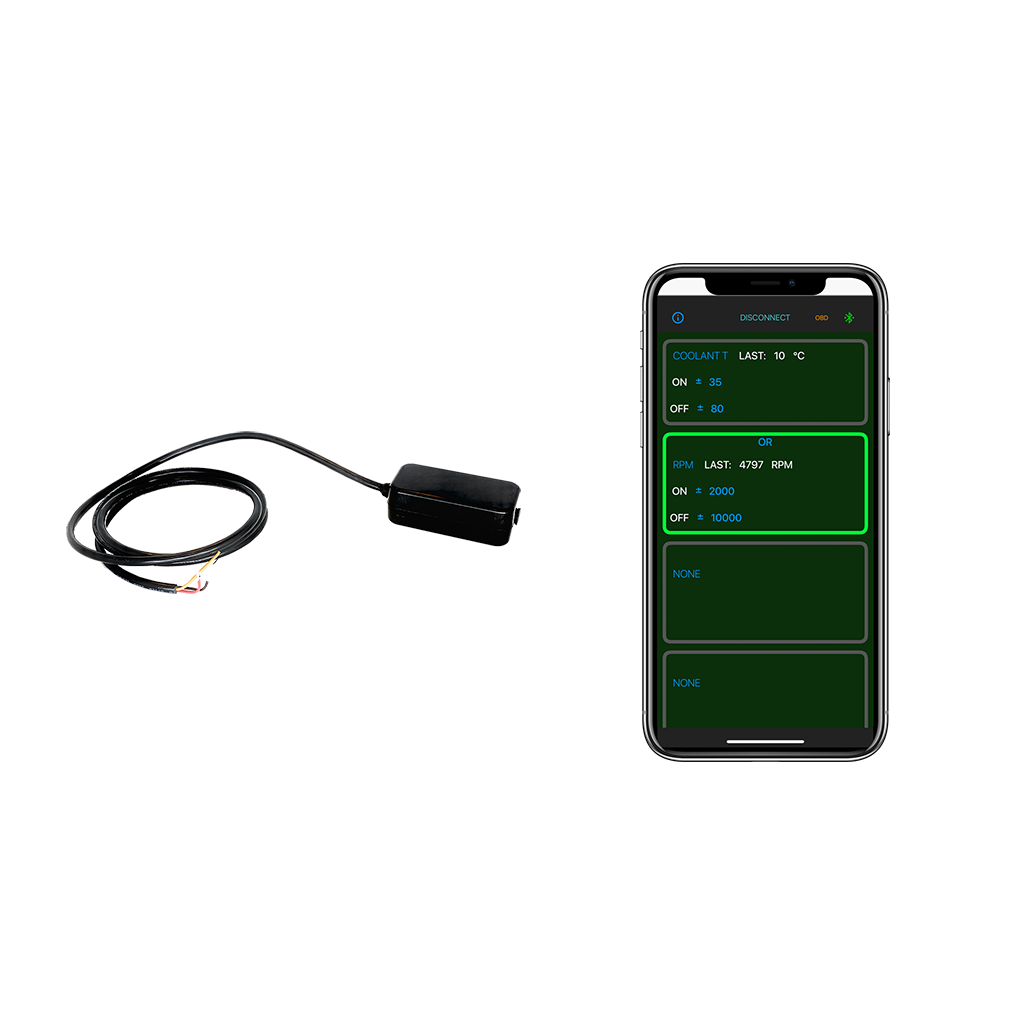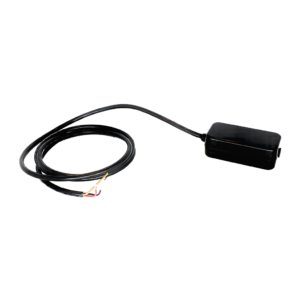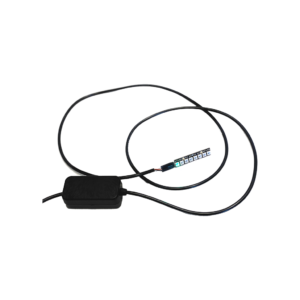Description
Do you need to control something based on intake air temperature, speed, throttle position, MAP, RPM, etc? The AUTO-REL™ wireless OBD2 relay turns on a device based on a number of OBD2 parameters (often called “PIDs”). Select up to 4 of these PIDs, and select the range to turn on the device you want to control.
You can set up multiple PIDs so that they all must be in range or either of them must be in range. For example, you might want to turn on a nitrous solenoid only if RPM is between 3000 and 7000, AND throttle position is greater than 80%. Or perhaps you want to turn on an intercooler spray cooling system if the intake air temperature (IAT) rises above some threshold OR manifold absolute pressure (MAP) is above 150kPa (turbo boost is building) to prevent heat soak.
EASY SETUP
Use the mobile app to configure the obd2 relay with the on/off window for each desired parameter (PID). Also, monitor the current status with real-time data so you can see which PID is within range and if the relay is currently on. Instructions here.
WIRELESS ADAPTERS
After setup, the AUTO-REL wireless OBD2 relay will automatically monitor the selected parameters, and turn the device you’ve connected to it on or off accordingly – standalone. At this time, the following wireless OBD2 adapters are supported: VEEPEAK OBD-II plug-in module, and the VGate or Tonwon modules that have a very low-current standby mode VGate OBD-II adapter
ADDITIONAL AUTO-REL OBD2 RELAY INFORMATION
Full instructions are here.
The wireless OBD-II modules you plug into the OBD port in your vehicle are sold by 3rd parties, and we cannot make any guarantees about their functionality or compatibility in your vehicle. You may want to purchase the adapter first and use one of the recommended apps (free versions are usually available) to see if the module is able to get data from your vehicle’s OBD2 port.
The AUTO-REL wireless OBD2 relay should not be installed near sources of high heat, such as exhaust manifolds or headers. Also the relay is not submersible or tested for splash-resistance at this time. We recommend mounting inside the cabin if feasible, or shielding it from heat and splash if mounted in the engine bay.
Follow all wiring and fusing instructions, do not use this relay to drive a device in excess of the relay’s rated current. For high-current devices, use the AUTO-REL relay to trigger a separate relay with the needed current capacity.
A switched power source is recommended to minimize current draw from the relay as well as the wireless OBD2 module. Some modules have a very low-current standby mode but they will not be able to enter that mode if the AUTO-REL relay is powered on as it will maintain a connection and continually ping the OBD2 module for information.
.
AUTO-REL WIRELESS OBD2 RELAY SPECIFICATIONS
Nominal input voltage 12V
Maximum input voltage 16V
Output voltage Same as input
Maximum sustained load current 3A
(@ 70C air temperature)
Recommended fuse 5A max*
Operating temperature range -40 to 70C (non-condensing)
Approximate response time 100ms per OBD PID**
* Ensure that the circuit providing power to this device can supply at least 5A
** Each PID requires time for the OBD2 module to obtain and transmit. The timing will vary depending on the vehicle and OBD2 module. The AUTO-REL wireless relay should not be used in applications where timing is critical due to this and in case of communication loss.







